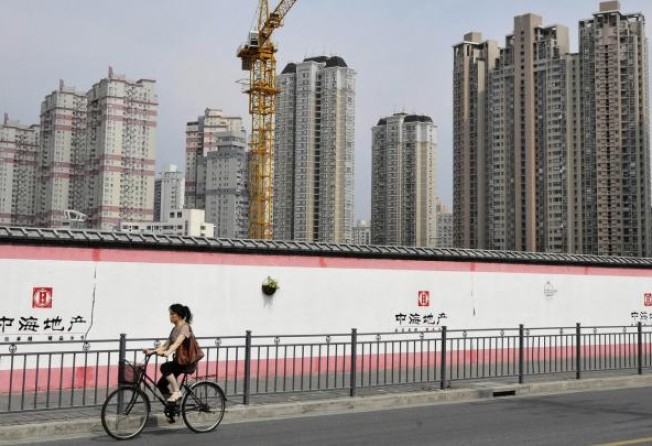Housing affordability ratio alarming for Hong Kong, Guangzhou, Shanghai
Research shows that home prices in Hong Kong, Guangzhou and Shanghai have risen to levels that are out of reach to the general public

Despite the introduction over the past two years of measures to cool house prices on the mainland and in Hong Kong only minor price corrections have been witnessed in many cities.
In Hong Kong, prices have continued to rise and have now surpassed their previous peak level.
This has led to discussions about how home prices have surged ahead of income levels, and the serious consequences of this mismatch for housing affordability.
To compare housing affordability in Hong Kong, Shanghai and Guangzhou, we have used a price-to-income ratio to gauge the relative price levels of the markets for new private homes in the three cities. The ratio is a widely used measure of housing affordability and is calculated by dividing the average market price of a standardised home by the average or median annual household income.
We assume a standard new apartment in Shanghai and Guangzhou is 950 square feet - since small flats are rare in the mainland's residential market - and have adopted a standard size for a new or secondary apartment in Hong Kong of 600 square feet.
Due to availability of data, average household income is used in Shanghai and Guangzhou while median household income is used in Hong Kong.
Housing prices in Shanghai and Guangzhou are citywide average new private home prices, taking into account differences in property type, location, fittings, and whether they were presale or completed apartments. Those of Hong Kong are derived from the Rating and Valuation Department's average home price data.
The resulting calculations show that Hong Kong's price-to-income ratio is the highest among the three cities at 17.6, which means a household has to save 17.6 years of its annual income without any consumption for buying a standard flat.
The situation is somewhat better in the two mainland cities.
Shanghai's price-to-income ratio, which had risen to 20.9 by the end of 2010, dropped to just 13.9 in the second quarter of this year following policy tightening measures on the property market as well as increases in income.
However, compared with Guangzhou, where the ratio is just 9.2, home prices are still much less affordable in both Shanghai and Hong Kong.
We then examined data on households with different levels of income to determine housing affordability for households with higher incomes. Once again the data shows that Shanghai home prices are the most affordable of the three cities. However, since banks now have a policy of not approving mortgage applications in cases where the required monthly repayment exceeds 50 per cent of monthly income, only the top income earners in the city could have successfully raised a mortgage over the last five years.
In the case of Guangzhou and Hong Kong it emerges that medium-high income groups can still afford a private apartment with the aid of a mortgage loan. However, the mortgage payments required would be a big burden, since repayments would amount to about half of the average household income.
The analysis shows that home prices in all the three cities have risen to levels which are out of reach to the general public. Housing affordability in Hong Kong, Shanghai and Guangzhou had risen to alarming levels by the second half of this year, with Hong Kong's ratio particularly high. In the case of Shanghai only high-income households were able to raise mortgages to help fund the purchase of a new home.
Both Hong Kong and the central government are now trying to address the affordability issue by increasing the supply of public housing. Hong Kong is increasing public housing for low-income groups as well as resuming and modifying the Home Ownership Scheme for medium-income households. The mainland plans to build 36 million subsidised apartments by 2015.
However, since the supply of public housing is not expected to increase dramatically in the near future, we expect affordability of housing will remain a big issue.
Thomas Lam is director and head of research for China at Knight Frank